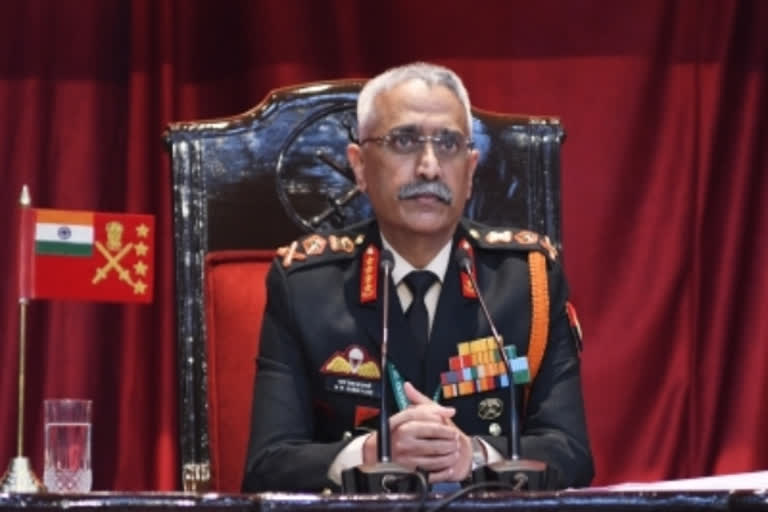New Delhi: Amidst border standoff with China, the Indian Army holds a commanders' conference led by General Manoj Mukund Naravane from Thursday to review the operational situation at the border with China and Pakistan. Indian Army Commanders' Conference is an apex level biannual event, which formulates important policy decisions through collegiate deliberations.
The conference was attended by senior officers of the Army including the vice chief of the army staff, all commanders, principal staff officers (PSOs) of the Army Headquarters and other senior officers. In the two-day conference, the Army top brass will discuss the current position of Chinese People's Liberation Army positions in disputed areas at Gogra, Hot Springs, Demchok and Depsang at Line of Actual Control in Eastern Ladakh.
China has enhanced troops, artillery and armour deployment in three sectors of Line of Actual Control -- western (Ladakh), middle (Uttarakhand, Himachal) and eastern (Sikkim, Arunachal) sectors. A year after the Galwan valley clash in Eastern Ladakh, China is still sitting at the Line of Actual Control and India has geared up for a long grind. Indian and Chinese military delegates had 11 rounds of talks to resolve border disputes at friction points.
Read: Top Indian Army brass to discuss LAC situation at high-level meeting next week
During the commanders' conference meeting, Army top brass discuss how to be better prepared to face Chinese belligerence in Ladakh over the last year as a final resolution seems far off. India has enhanced military infrastructure, increased troop deployment to 50,000 to 60,000, and constructed better roads connectivity for quick mobilisation.
Last month, General Naravane said that the troops are on high alert at Line of Actual Control and are keeping watch on Chinese People's Liberation Army activities.
The Indian Army chief stated that India wants the status quo ante of April 2020 to be restored. He also stated that India has made it clear to China that de-escalation will only be considered once disengagement is completed to the mutual satisfaction of both the sides.
He had said that Indian troops are on high alert and deployments have not thinned after the disengagement in Pangong River. General Naravane said that India is currently concentrating on resolving outstanding problems at other friction points like Hot Springs, Gogra and Depsang at Line of Actual Control.
The army chief also stated that trust levels between two countries are low but pointed out that the trust deficit should not hinder the negotiation process.
Read: India hands over medical equipment worth over Rs 18 crore to Nepali Army
At Galwan valley, the clash took place on June 15 last year sparking a war like situation. Later by the end of August last year there was a further build up across and Pangong Lake at 14,000 ft turning it into a battle zone as India occupied key mountain tops at the Kailash Range overlooking the southern bank of the lake.
IANS



